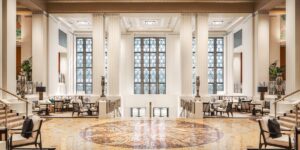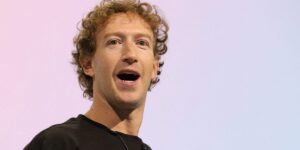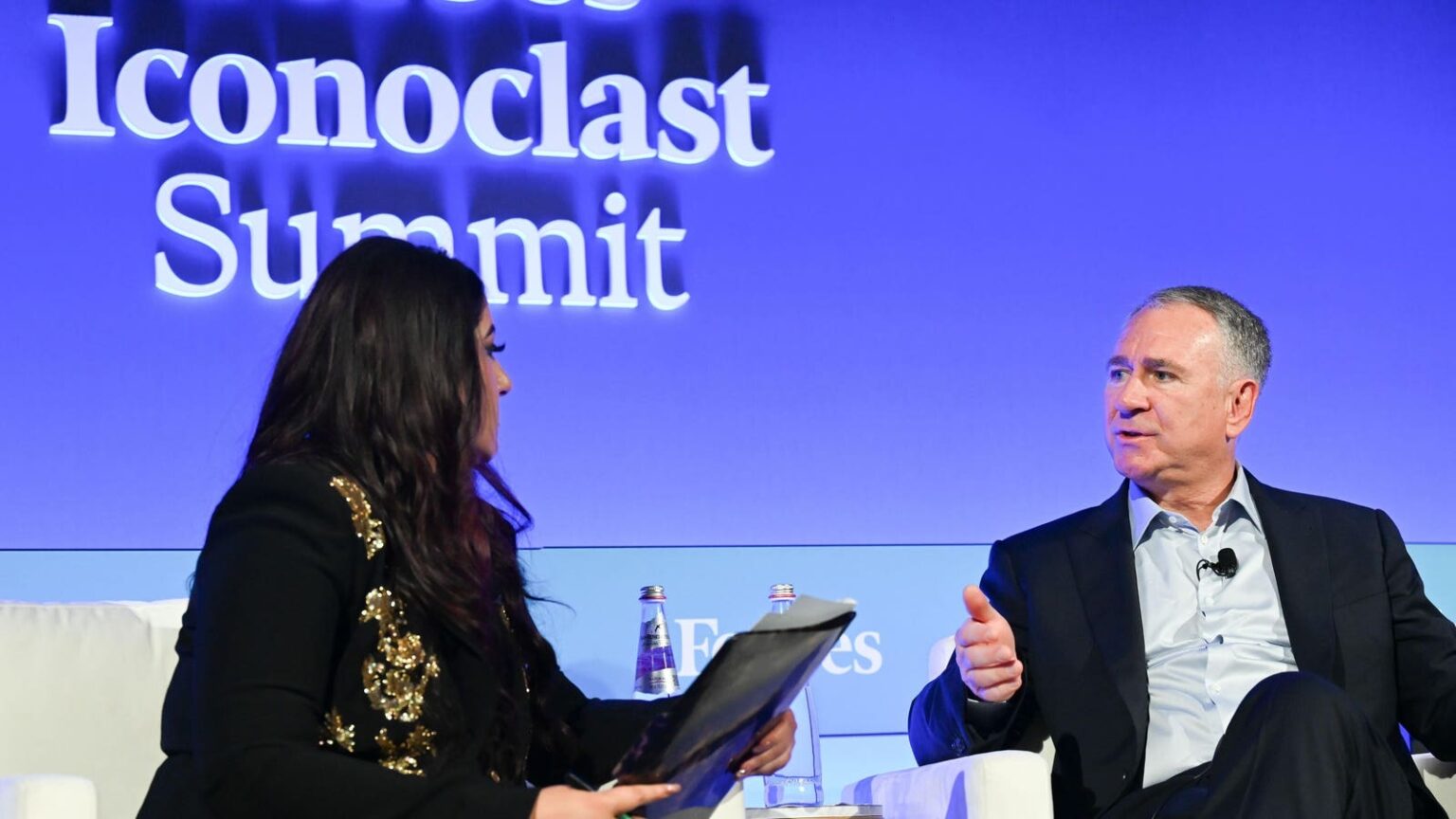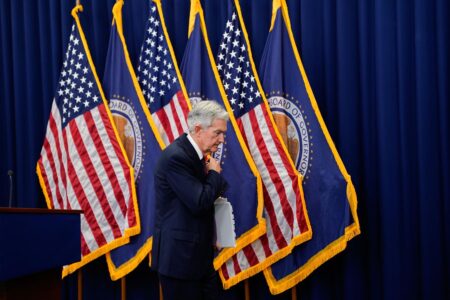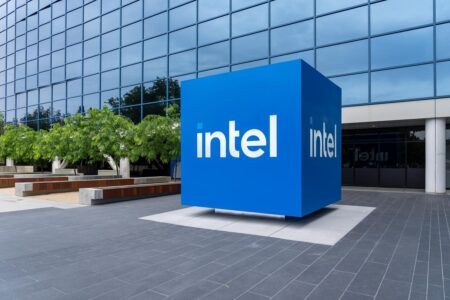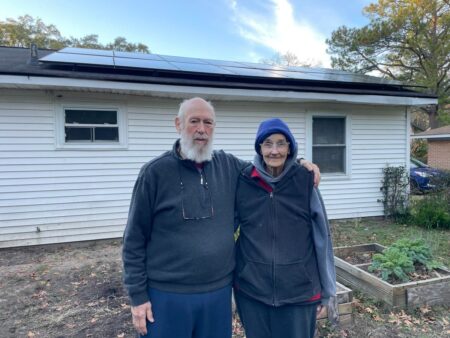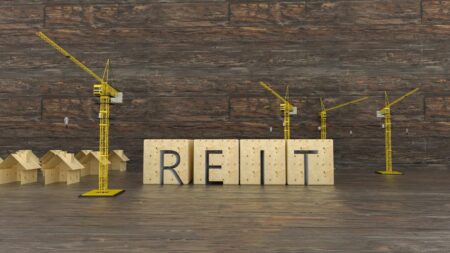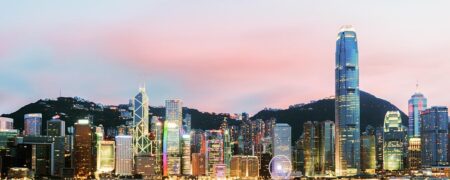The U.S. stock market is close to a record high as the summer begins, but it’s been a topsy-turvy ride to get there. When Donald Trump began imposing or threatening heavy tariffs in February and doubled down on “Liberation Day” on April 2, the S&P 500 index fell as much as 19%. It has since recovered most of those losses while Trump’s stance has softened for now.
Volatility creates opportunity, and Forbes again convened dozens of investors and business leaders for the fourth annual Forbes Iconoclast Summit at Cipriani Wall Street on Thursday. Billionaires Ken Griffin, Bill Ackman, Larry Fink, Todd Boehly and many more are taking the stage, and we’ll be covering all the conversations in real time throughout the day below.
Ken Griffin Slams Tariffs
Citadel’s Ken Griffin sharply criticized the Trump administration’s pursuit of tariffs, after celebrating the president’s election by trumpeting that America was “open for business” last December. “I thought we were looking at four years of tremendous growth and tremendous American economic vitality,” Griffin said in a discussion with Forbes editor-at-large Maneet Ahuja on stage. “We’re leaving so much opportunity on the table.”
Griffin said the use of tariffs comes at a “dear price” to the U.S. economy and American consumers facing higher prices. While he is still hopeful the administration will pivot to a more business-friendly, deregulatory posture, he said Citadel’s best estimates for growth this year are only about half of what he expected following Trump’s election.
On the subject of Trump’s funding bill, which Elon Musk has slammed as an “abomination,” Griffin also views overspending as a critical concern. “You cannot run deficits of 6 or 7% at full employment after years of growth. That’s just fiscally irresponsible,” he said. “There will come a time when we have to have our fiscal house in order.”
Don’t Count The U.S. Out
Mary Callahan Erdoes, JPMorgan’s CEO of asset and wealth management, sounded a note of optimism against a backdrop of tariff-fueled anxiety. “The U.S. consumer is fine,” she asserted on a panel moderated by Moira Forbes. “We’re not seeing stress almost anywhere.” While acknowledging that inflation due to tariffs may be likely, it hasn’t taken hold yet.
Alex Clavel, CEO of Softbank Vision Funds, also thinks it’s a “terrific time” to invest in the U.S. “As a global technology investor, the U.S. is our big fish. This is the market where we are over-allocating capital.” Eric Wilmes, president and head of private equity for the Americas for GIC, Singapore’s sovereign wealth fund, concurred, says there’s “a ton of opportunity in the U.S.”
Erdoes pointed out that the bullishness on the U.S. from her co-panelists’ firms based in Japan and Singapore exemplified the idea that American exceptionalism is alive and well. No other country has the same entrepreneurial support, capital markets liquidity, transparency and rule of law, and that advantage shouldn’t be taken lightly. “We have to be really careful when we read these headlines and we start hand-wringing about what’s happening, because it’s on the margin,” she said.
Lessons In Leadership And Optimism
Larry Fink, Blackrock’s chairman and CEO, spoke with Rockefeller Capital Management CEO Greg Fleming about how Blackrock’s growth has continued and accelerated since its origins in 1988. Last year, Blackrock agreed to buy private credit firm HPS for $12 billion and Global Infrastructure Partners for another $12.5 billion, adding to its $11.6 trillion in assets under management. “We spent a lot of time talking about culture and team, and if we could not find connectivity and a unity of opinions and ideas, we were not interested,” Fink said of the acquisitions. “Valuation is actually pretty darn easy if you get the culture and the team correct.”
Fink said he’s broadly optimistic about the direction of the economy, but that uncertainty is taking a toll. “If you study behavioral science, when there’s an uncertain period of time, your decisions are negatively biased by that uncertainty,” he said. “We’re going to start seeing the impact of these tariffs. It’s going to start impacting the economy over the course of the next five months.”
He said “unlocking” private capital is the key to jumpstarting growth again and limiting the damage of the deficit, hoping that some of the $12 trillion currently sitting in money-market funds gets put to work. “We need our savers to be long-term believers in our economy,” Fink urged. “Over the last 40 years, pessimism has not worked.”
More from Forbes
Read the full article here


